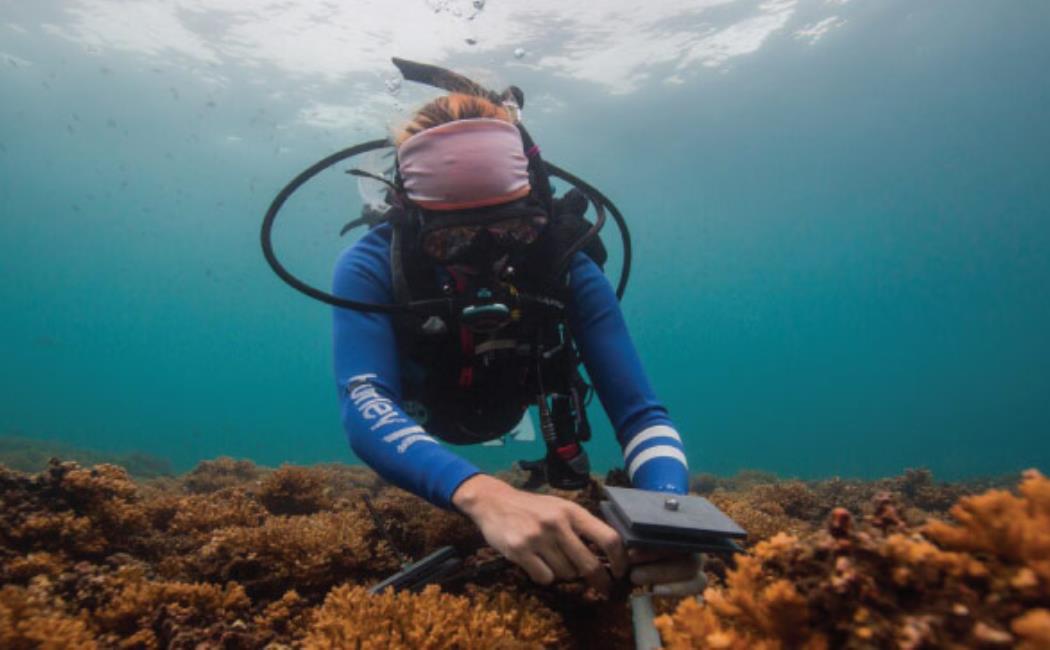
Checking coral reef health one tile at a time
14 June, 2022
A blueprint for measuring calcium carbonate on the ocean floor could help marine scientists monitor coral reef health around the globe.
Climate change and pollution from human activities are irreversibly changing many marine habitats, particularly coral reefs. To assess and mitigate future impacts, ecologists must understand how these ecosystems are functioning right now.
One indicator of coral reef health is how much calcium carbonate is produced over time as shells and skeletons of marine animals accumulate on the ocean floor. Researchers often use special tiles on the seabed, which gradually become home to settling pioneering plants and animals. After a year, the researchers retrieve the tiles to see how much calcium carbonate has accumulated on them and which living species are present.
Click here to read the full story.
Image: Marine scientist Maggie Johnson (pictured) is implementing a method to measure calcium carbonate production in coral reefs, which is a proxy for coral reef health.
© 2022 KAUST; Sean Mattson